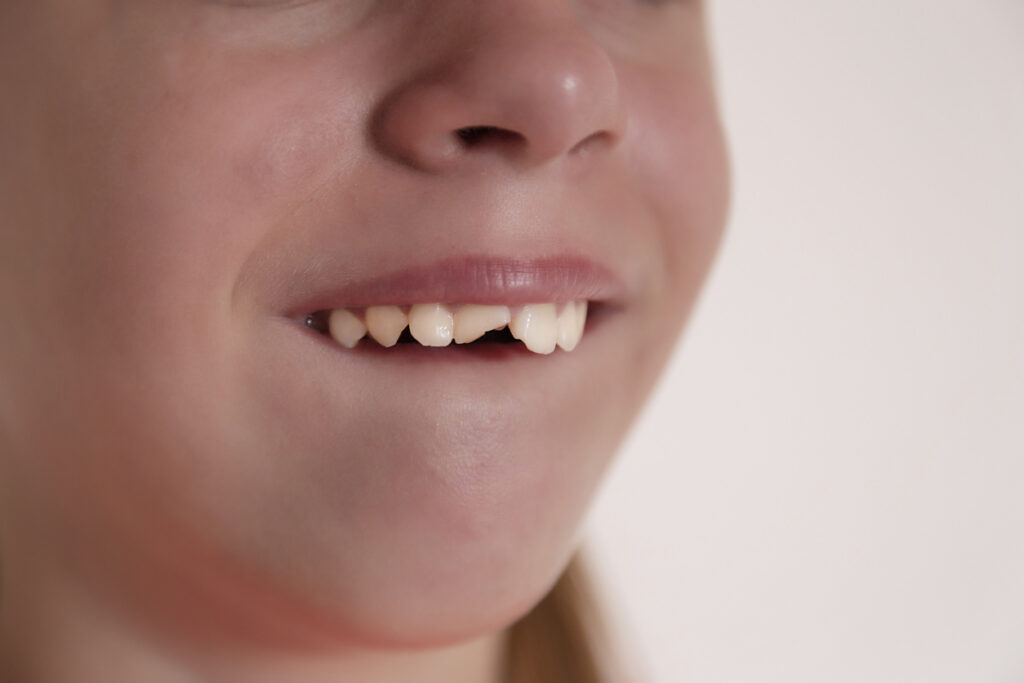Key Takeaways
- If a child chips a tooth, acting quickly can reduce pain, complications, and future costs.
- Gather any tooth fragments, rinse gently, apply a cold compress, and seek dental care promptly.
- Even small chips should be assessed—hidden damage to the root or nerve may exist.
- During sports, school holidays and active play, a fitted mouth-guard is a smart preventive choice.
- Morrin Dental is equipped to manage dental emergencies and guide you through next steps.
When your child chips a tooth during sport, playtime or school holidays, it can be scary for both them and you. But with the right approach, you can reduce risk of long-term damage and get them back smiling sooner.
Here’s what to do, step by step — plus what to expect when you get to the dentist.
Step 1: Stay Calm and Assess the Situation
First, reassure your child. Panic can worsen the pain and complicate things. Make sure there’s no head injury, heavy bleeding, trouble breathing or other serious trauma. If there is, call 000 or go to your nearest hospital emergency department.
Then check inside the mouth:
- Are there visible fragments of tooth?
- Is there bleeding, swelling, or a part of the tooth missing?
- Was the impact during a contact sport or fall?
Step 2: Rinse & Preserve Any Fragments
If your child managed to chip a piece of tooth — or break a chunk — find the fragment, rinse it gently in milk, saline or clean water. Do not scrub or attempt to clean the root.
Store the fragment in a small sealed container with milk, saline or your child’s saliva if safe. Bringing fragments to the dentist may make reattachment possible.
Step 3: Manage Pain & Protect the Area
For the chipped tooth:
- Have your child rinse gently with warm water to clean the area.
- Apply a cold compress to the outside of the cheek near the injury site for 10–15 minutes to reduce swelling and pain.
- Avoid giving hard or chewy foods and very hot or cold drinks until a dentist assesses the area.
- Provide age-appropriate pain relief (such as paracetamol or ibuprofen) if recommended by your pharmacy or GP.
Step 4: Seek Dental Care Promptly
Even if your child appears comfortable and it seems like “just a chip”, it’s important to reach a dentist without delay. Trauma to a tooth can cause cracks, nerve exposure or root damage that are not visible to the naked eye.
When you contact Morrin Dental:
- Explain that a dental trauma event has occurred and that a chipping/impact incident has taken place.
- Ask for an emergency appointment — we prioritise these cases.
- Bring the tooth fragment (if available) and provide context on how the injury happened.
- Our team may perform imaging to check for root or bone involvement.
Step 5: Follow-Up & Prevent Future Injuries
After treatment:
- Follow all post-treatment advice (e.g. soft food, gentle brushing).
- Monitor for ongoing symptoms such as pain, sensitivity or discolouration.
- Consider getting a custom sports mouth-guard for contact sports or high-risk activities.
Why This Matters for Families in Newcastle
During school holidays or active after-school play around Newcastle, kids are constantly on the move. A chipped tooth may seem minor, but untreated trauma can lead to:
- More expensive dental treatments later
- Tooth loss or nerve damage
- Disrupted sleep, eating and school routine
At Morrin Dental, we understand the urgency and offer fast, friendly support when your child needs it most.
What Makes Our Clinic Different
- Same-day or next-day appointments for urgent dental injuries
- Child-friendly approach and environment
- Advanced imaging to assess the full extent of injury
- Clear, calm communication and family support
Final Words
When a child chips a tooth, the first few minutes and hours count. Rinse and preserve any fragments, apply a cold compress, avoid chewing on the side, and see a dentist promptly. Prevention is also key — use mouth-guards and reinforce safe play habits.
📞 Call Morrin Dental today or book online for prompt, expert care in a dental emergency. We’re here to help Newcastle families when they need us most.
